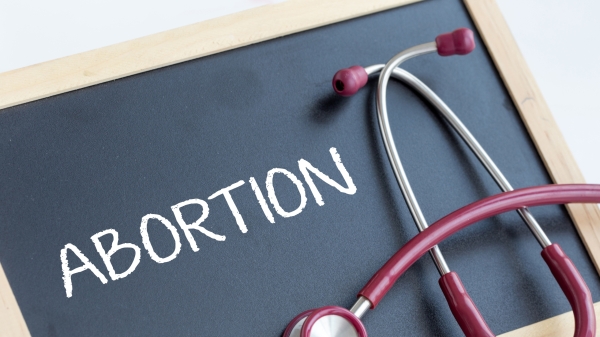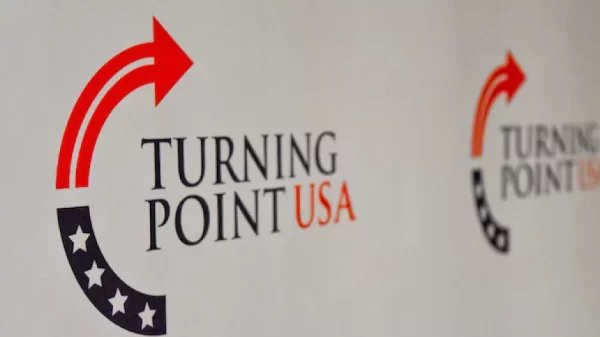When investigative journalist Nina Martin returned to Alabama to report on the state’s post-Roe abortion landscape, she didn’t focus just on laws banning the procedure. Instead, she zeroed in on something even more chilling: the criminalization of help.
“At the center of Alabama’s most consequential reproductive rights battle in recent memory is the Yellowhammer Fund—a grassroots abortion fund turned full-spectrum family justice organization that dared to keep helping when the state made help a crime,” Martin told me.
Martin’s latest reporting for Reveal and Mother Jones traces how Alabama Attorney General Steve Marshall threatened to prosecute Yellowhammer and former abortion providers under an 1896 criminal conspiracy law, arguing that assisting women in leaving the state for legal abortions in other states could be punished by up to life in prison.
“It wasn’t just that abortion became illegal,” Martin said. “It was that help became illegal.”
That legal theory turned Alabama into a national outlier. While other states passed trigger laws banning abortion, only Alabama declared that even arranging a ride, paying for a bus ticket, or giving someone a phone number for an out-of-state clinic could land you in court.
For more than a year, Yellowhammer operated in legal limbo—forced to scale back critical services, silenced by the threat of prosecution. But they fought back. In 2023, Yellowhammer and other plaintiffs filed suit in Yellowhammer Fund v. Marshall, arguing the AG’s threats violated constitutional protections, including freedom of speech, freedom of association, and the right to interstate travel.
The case was heard by U.S. District Judge Myron Thompson, a federal judge with a long track record of protecting civil rights in Alabama. In March 2024, Thompson issued a sweeping ruling siding with Yellowhammer and striking down the state’s legal threats. The judge warned that if Marshall’s logic were allowed to stand, even planning a bachelor party in Las Vegas from Alabama could become a crime because casino gambling is illegal in Alabama.
Martin called the ruling “everything and more” that Yellowhammer could have hoped for. Within 15 minutes, the fund helped cover its first out-of-state abortion in over a year. By the end of the month, nearly 50 people had received assistance.
Yellowhammer’s transformation is at the heart of Martin’s story. When Alabama’s near-total abortion ban went into effect on June 24, 2022—the day the Dobbs v. Jackson Women’s Health Organization decision overturned Roe v. Wade—the fund lost the ability to help people get abortions in the state. But instead of closing its doors, it expanded its mission. They asked people what they needed—childcare, transportation, birth control, groceries—and then they tried to provide it. What emerged was a family justice model built not just on resistance, but on love.
That commitment to compassion stands in sharp contrast to Alabama’s philosophy of criminalization. Martin first interviewed Steve Marshall a decade ago while reporting on Alabama’s use of the chemical endangerment law to prosecute pregnant women for drug use. At the time, Marshall was a local DA pioneering a legal theory that would eventually sweep across the state. He was affable, accessible—and fully convinced that punishment was a form of help. Arresting a woman, taking her baby, forcing her into drug court or prison—he saw those as pathways to healing.
That logic continues to animate Alabama’s approach to reproductive justice. Martin pointed out that the state has some of the lowest Medicaid eligibility thresholds in the country. Public assistance is sparse. Basic help is often handed over to religious charities, where aid comes with moral strings attached. Meanwhile, the state criminalized the few organizations offering practical support. In contrast, Yellowhammer offers help without judgment or preconditions. They even mail free birth control—something crisis pregnancy centers routinely refuse to provide.
Marshall did not appeal the ruling—a move that surprised many, but Martin warns that while the right to help has been restored in Alabama, the national battle is far from over. Other states like Tennessee and Idaho are pursuing similar restrictions. In federal courts, Republican officials are pushing lawsuits to block the distribution of abortion pills through telemedicine, even when prescribed legally by doctors in other states. If those efforts succeed, the chilling effect could ripple far beyond Alabama’s borders.
Martin’s reporting reveals the depth of that fight—and the power of those who refuse to back down. Yellowhammer may be a small organization, but its mission is expansive: listen to women, trust them, and help however they can. As Martin put it, “It’s a story about the people who stayed. Who kept showing up. Who refused to let help die.”
In a state that made compassion a crime, that’s no small thing.
Follow Nina Martin on X @byninamartin and find her work on Reveal and Mother Jones. Her latest radio report airs May 10 on NPR and wherever podcasts are available.


















































